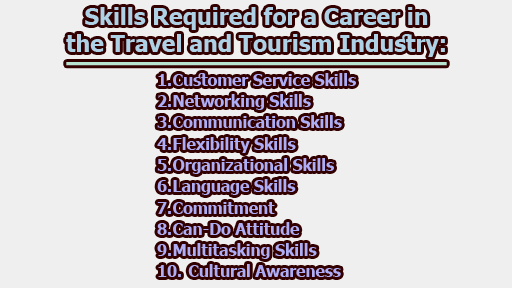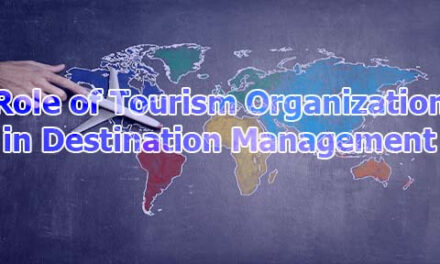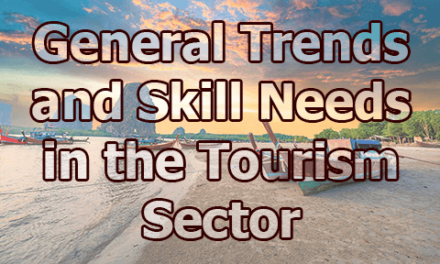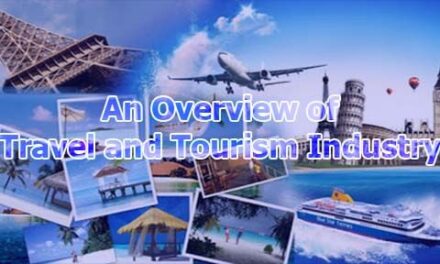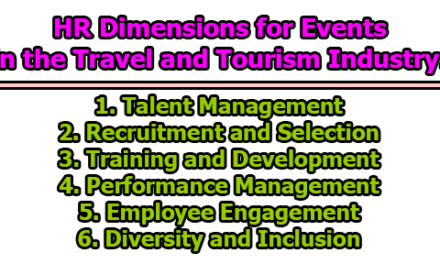Skills Required for a Career in the Travel and Tourism Industry:
The travel and tourism industry has witnessed exponential growth, fueled by globalization, technological advancements, and an increasing desire for exploration. This thriving industry has created numerous employment opportunities, making it an attractive career choice for individuals who are passionate about hospitality, customer service, and adventure. A career in travel and tourism offers diverse roles, from hotel managers and tour guides to travel agents and event planners, each requiring a unique set of skills. While technical expertise is undoubtedly essential, the success of any professional in the travel and tourism industry largely depends on their soft skills. These intangible qualities shape the way individuals interact with clients, handle challenges, and contribute to the overall success of their organization. In this article, we will explore ten essential soft skills that future hospitality and tourism managers should master to excel in this dynamic and rewarding field. Skills required for a career in the travel and tourism industry.
1. Customer Service Skills: Exceptional customer service is the foundation of success in the travel and tourism industry. Managers must understand that customer satisfaction directly impacts the business’s bottom line. Training in customer service is crucial to equip managers with the ability to handle various customer needs, concerns, and requests effectively.
Managers must be attentive, responsive, and empathetic to exceed customer expectations. They should be prepared to handle difficult situations with tact and grace, ensuring that guests feel valued and cared for throughout their journey.
2. Networking Skills: Networking is a key aspect of the travel and tourism industry, facilitating collaboration, business partnerships, and repeat clientele. Managers should actively engage with industry professionals, tour operators, travel agencies, and local organizations to expand their network and attract potential customers.
Building a strong network enhances career prospects and opens doors to new opportunities and business ventures. Effective networking also helps managers stay updated on industry trends and innovations, which can further enhance the services they provide.
3. Communication Skills: Clear and effective communication is vital in the travel and tourism industry, where interactions with customers and team members occur daily. Managers should be proficient in verbal and written communication, ensuring that their messages are conveyed accurately and concisely.
In addition to fluency in multiple languages, managers must possess excellent listening skills to understand customer needs fully. Effective communication creates a positive and welcoming environment, fostering long-lasting relationships with customers.
4. Flexibility Skills: The travel and tourism industry is known for its unpredictability, and managers must adapt to ever-changing circumstances. From handling last-minute bookings to dealing with travel disruptions, flexibility is critical for successful managers.
Managers should be prepared to adjust schedules, accommodate special requests, and maintain composure under pressure. Demonstrating flexibility allows managers to handle challenges efficiently and provide exceptional service, ensuring customer satisfaction and loyalty.
5. Organizational Skills: In a fast-paced industry, organizational skills are essential for managers to maintain efficient operations. From managing reservations and coordinating staff schedules to handling administrative tasks, organizational abilities are crucial for smooth day-to-day functioning.
Utilizing tools like checklists, time management techniques, and digital software can enhance organizational skills and improve overall efficiency. Well-organized managers can deliver consistent and high-quality services, enhancing the reputation of the establishment.
6. Language Skills: Language skills are highly advantageous in the travel and tourism industry, where interactions with international travelers are common. Fluency in multiple languages allows managers to communicate effectively with a diverse clientele, creating a personalized and welcoming experience.
In tourist destinations that attract visitors from various countries, language proficiency can be a significant differentiator for managers. Understanding cultural nuances and speaking the customer’s language fosters a strong rapport and builds trust.
7. Commitment: The hospitality and tourism industry demands commitment and dedication from its managers. Managers must be willing to invest time and effort to ensure the success of their team and the satisfaction of their customers.
Long working hours, especially during peak seasons, are commonplace in this industry. A committed manager who prioritizes customer service and employee welfare can inspire loyalty and create a positive work culture.
8. Can-Do Attitude: A positive and proactive attitude can make a significant impact on the overall atmosphere of a hospitality establishment. Managers who approach challenges with enthusiasm and optimism motivate their team members to go the extra mile in delivering exceptional service.
A can-do attitude fosters a culture of innovation and continuous improvement, as managers and employees work together to find creative solutions to problems and enhance guest experiences.
9. Multitasking Skills: Hospitality and tourism managers often have to handle multiple responsibilities simultaneously. From overseeing staff and coordinating events to managing customer inquiries and addressing issues, multitasking is a fundamental skill for success.
Effective multitasking requires prioritization, time management, and the ability to remain focused amid distractions. Managers who excel at multitasking can maintain high productivity levels and deliver excellent service even during busy periods.
10. Cultural Awareness: In a global industry that caters to travelers from diverse cultural backgrounds, cultural awareness is crucial. Managers must exhibit sensitivity and respect towards different customs, traditions, and communication styles.
Understanding cultural norms and preferences enables managers to provide personalized and thoughtful services, ensuring that all guests feel welcomed and appreciated. A culturally aware manager fosters a positive and inclusive environment, which contributes to overall customer satisfaction.
In conclusion, the travel and tourism industry presents a world of opportunities for those with a passion for hospitality and a flair for adventure. While technical knowledge is essential, it is the mastery of soft skills that truly sets apart successful managers in this dynamic field. From exceptional customer service and effective communication to adaptability, cultural awareness, and a can-do attitude, these essential soft skills form the bedrock of a thriving career in hospitality and tourism. By continually honing these skills, aspiring managers can create unforgettable experiences for their guests, foster strong relationships with industry professionals, and contribute to the growth and reputation of their establishments. With dedication, commitment, and a focus on continuous improvement, individuals can embark on a fulfilling journey in the vibrant and ever-evolving world of travel and tourism.
Frequently Asked Questions [FAQs]:
What are the essential soft skills for a career in tourism and hospitality?
Some essential soft skills for a career in tourism and hospitality include customer service skills, networking skills, communication skills, flexibility, organizational skills, language skills, commitment, a can-do attitude, multitasking skills, and cultural awareness. These skills are crucial for providing exceptional service, building relationships, handling diverse clientele, and thriving in the fast-paced and ever-changing hospitality industry.
Why are soft skills important in the hospitality and tourism sector?
Soft skills are vital in the hospitality and tourism sector because they directly impact the quality of customer service, guest satisfaction, and overall guest experience. Employees with strong soft skills can handle challenging situations, adapt to changing demands, communicate effectively with guests from different backgrounds, and build lasting relationships that lead to customer loyalty and repeat business.
How can I improve my customer service skills in the hospitality industry?
Improving customer service skills in the hospitality industry can be achieved through active listening, empathy, anticipating customer needs, resolving complaints with a positive attitude, and going the extra mile to exceed customer expectations. Training programs, workshops, and on-the-job experiences can also help employees develop and refine their customer service skills.
What role does networking play in the hospitality industry?
Networking is essential in the hospitality industry as it helps build strong relationships with customers, suppliers, and industry professionals. Positive networking experiences can lead to repeat business, word-of-mouth referrals, and increased opportunities for career growth. It also allows hospitality professionals to stay updated with industry trends and gain valuable insights into customer preferences.
How can I enhance my communication skills in the hospitality sector?
Enhancing communication skills in the hospitality sector involves practicing active listening, using clear and concise language, being mindful of non-verbal cues, and adapting communication styles to suit the needs of diverse guests. Engaging in role-playing exercises, taking communication courses, and seeking feedback from colleagues and supervisors can also aid in improving communication skills.
Is flexibility a crucial attribute in the hospitality and tourism industry?
Yes, flexibility is a crucial attribute in the hospitality and tourism industry due to its dynamic nature. Employees in this sector often face irregular working hours, last-minute changes, and unexpected challenges. Being adaptable and flexible allows professionals to handle these situations effectively and ensure smooth operations, resulting in better guest experiences.
How can cultural awareness benefit a career in hospitality and tourism?
Cultural awareness is essential in the hospitality and tourism industry as it enables professionals to cater to the diverse needs and expectations of international guests. Understanding different cultural norms, values, and customs helps avoid misunderstandings, fosters positive interactions, and creates an inclusive environment that makes guests feel comfortable and valued.
What is the significance of a can-do attitude in the hospitality field?
A can-do attitude is highly significant in the hospitality field as it demonstrates enthusiasm, positivity, and a willingness to take on challenges. Hospitality professionals with a can-do attitude are more likely to embrace new responsibilities, find innovative solutions to problems, and exhibit a proactive approach in delivering exceptional service to guests.
How can I develop strong organizational skills in the hospitality and tourism sector?
Developing strong organizational skills in the hospitality and tourism sector can be achieved through effective time management, creating daily checklists, prioritizing tasks, and using tools like calendars and task management apps. Staying organized enables professionals to handle multiple responsibilities efficiently, avoid mistakes, and provide seamless experiences to guests.
What are some recommended courses or training for a career in tourism and hospitality?
Many educational institutions offer specific courses and training programs in tourism and hospitality management. Some recommended courses include hotel management, travel and tourism management, customer service training, event management, and cultural awareness courses. These programs provide valuable insights, technical knowledge, and hands-on experiences that prepare individuals for successful careers in the industry.
How can I stay updated with the latest trends and developments in the travel and tourism industry?
To stay updated with the latest trends and developments in the travel and tourism industry, professionals can regularly read industry publications, attend conferences, join professional organizations, and participate in webinars and workshops. Engaging with industry experts, networking with peers, and following reputable online resources also help in staying informed about the evolving landscape of the tourism sector.

Library Lecturer at Nurul Amin Degree College

